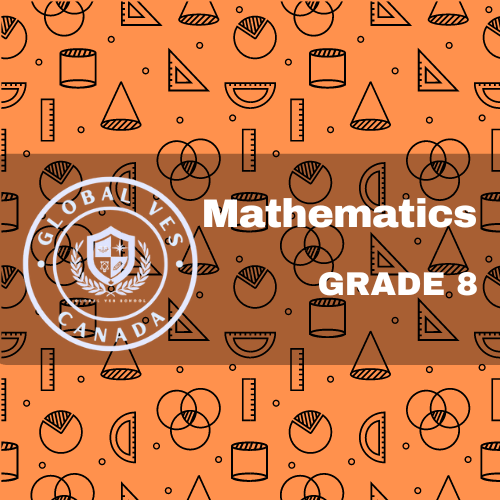
Grade 8 Mathematics Course Introduction
Welcome to Grade 8 Mathematics! This course follows the Ontario Ministry of Education guidelines and will help you deepen your understanding of mathematical concepts and develop essential problem-solving skills. The course covers five key strands:
Number Sense and Operations: You will explore integers, fractions, decimals, and percentages, and learn how to apply operations like addition, subtraction, multiplication, and division in real-world contexts.
Algebra: This strand focuses on solving equations, understanding patterns, and using algebraic expressions to represent relationships between numbers.
Geometry and Spatial Sense: You will investigate properties of shapes, angles, transformations, and the relationships between 2D and 3D figures, enhancing your spatial reasoning skills.
Measurement: Learn to measure and calculate area, volume, surface area, and perimeter, and apply these skills in practical situations.
Data and Probability: You will collect, analyze, and interpret data, and explore concepts of probability to make informed predictions and decisions.
Through hands-on activities, real-world applications, and collaborative problem-solving, you’ll develop mathematical confidence and critical thinking skills that will prepare you for high school and beyond.
Let’s get ready to explore the exciting world of mathematics together!
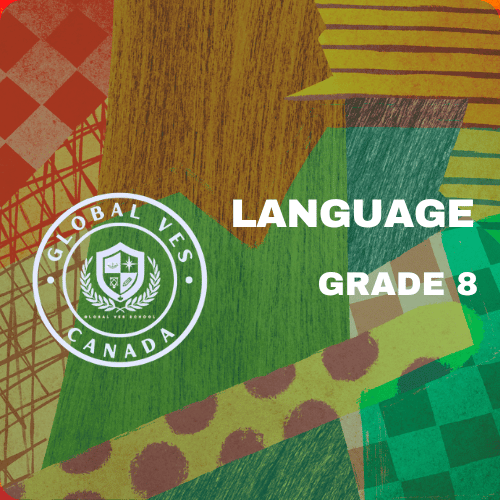
Grade 8 Language Course Introduction
Welcome to Grade 8 Language! This course follows the Ontario Ministry of Education guidelines and is designed to enhance your reading, writing, oral communication, and media literacy skills. You will explore a variety of engaging texts and media while developing your ability to communicate effectively. The course is divided into four key strands:
Reading: You will read and analyze a wide range of fiction and non-fiction, focusing on understanding ideas, themes, and perspectives while building comprehension and critical thinking skills.
Writing: This strand will help you improve your writing process, from brainstorming ideas to drafting, revising, and editing. You will work on different forms of writing, including essays, reports, and creative pieces.
Oral Communication: You will develop your speaking and listening skills through discussions, presentations, and collaborative work, learning to express your ideas clearly and listen to others’ perspectives.
Media Literacy: In this strand, you will critically analyze media messages, explore how media influences our world, and create your own media projects.
By the end of the course, you will be a more confident and capable communicator, ready to express your ideas in various forms. Let’s embark on a year of language exploration together!
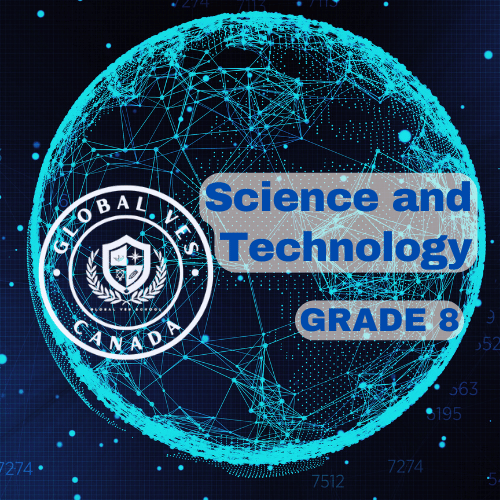
Grade 8 Science and Technology Course Introduction
Welcome to Grade 8 Science and Technology! This course follows the Ontario Ministry of Education guidelines and focuses on exploring key scientific concepts and technological advancements that shape our world. You will engage with four main strands:
Life Systems: Cells and Systems – Dive into the world of living organisms, learning about cells, organs, and systems, and how they work together to support life.
Structures and Mechanisms: Systems in Action – Investigate how different systems, both natural and human-made, function and the technology behind them.
Matter and Energy: Fluids and Water Systems – Explore the properties of fluids, the dynamics of water systems, and their critical roles in the environment and human activities.
Earth and Space Systems: Water Systems on Earth – Study Earth’s water systems, how they interact with the environment, and their importance for ecosystems and human societies.
Throughout the course, you will develop scientific inquiry skills, work on hands-on projects, and explore real-world applications of science and technology. Get ready for an exciting journey of discovery and innovation!
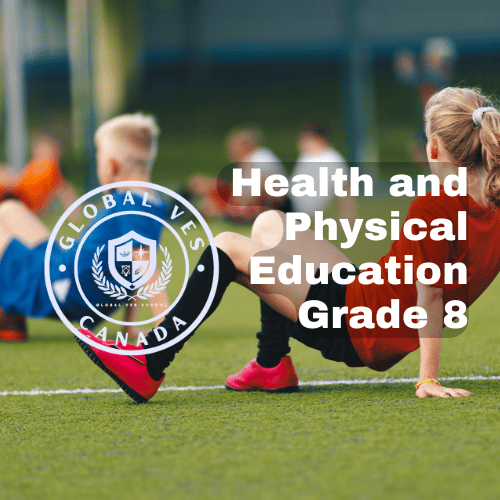
Welcome to Grade 7 Health and Physical Education! This course follows the Ontario Ministry of Education guidelines and is designed to support your physical, mental, and emotional well-being. It is divided into two main areas:
Physical Education: You will develop a wide range of movement skills, improve your fitness, and participate in a variety of sports and activities. We will focus on building teamwork, leadership, and personal fitness goals, all while promoting a healthy, active lifestyle.
Health Education: This component will help you understand topics such as healthy relationships, mental health, substance use, and human development. We will also explore strategies to make informed decisions and promote your personal safety and well-being.
This course encourages an active, healthy lifestyle and provides the knowledge and skills to make positive choices for your overall health.
Let’s get moving and learning together!
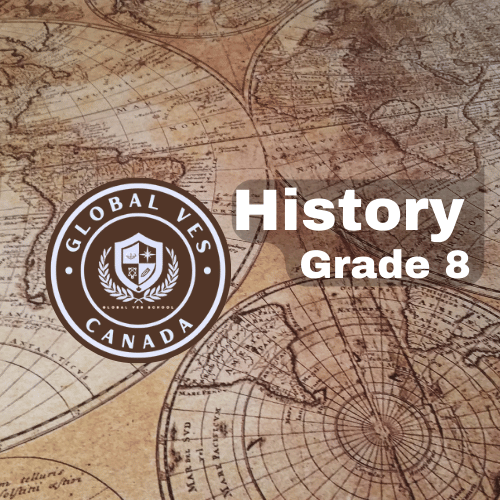
Grade 8 History Course Introduction
Welcome to Grade 8 History! This course follows the Ontario Ministry of Education guidelines and explores significant events and developments in Canadian history from 1850 to 1914. You will focus on two key strands:
Creating Canada (1850–1890): We will investigate how Canada moved towards Confederation, the factors that shaped its expansion, and the challenges faced by various groups, including Indigenous peoples, French and English settlers, and new immigrants.
Canada, A Changing Society (1890–1914): This strand focuses on the social, economic, and political changes that transformed Canada during the early 20th century, including industrialization, urbanization, and growing calls for equality and social reform.
Through critical analysis of historical sources and events, you’ll gain insights into how Canada's diverse past has shaped its present and will develop an understanding of key issues that remain relevant today.
Get ready to explore Canada’s journey through a time of transformation and growth!
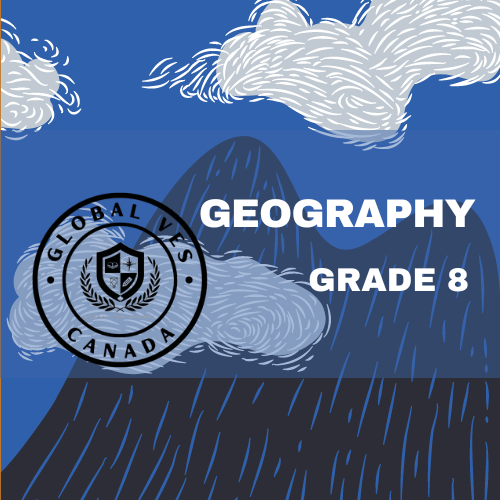
Welcome to Grade 8 Geography! This course follows the Ontario Ministry of Education curriculum and explores key global issues and the relationship between humans and their environment. The course is divided into two major strands:
Global Settlement: Patterns and Sustainability: You will examine how and why people settle in different regions of the world and explore the factors that influence population distribution, urbanization, and sustainable development.
Global Inequalities: Economic Development and Quality of Life: This strand focuses on the causes and impacts of global inequalities, including access to resources, economic development, and differences in living standards across countries. We will also consider ways to reduce inequalities and promote sustainable development.
Through inquiry-based learning and critical thinking, you will use geographic tools such as maps and data analysis to better understand global patterns and your role as a global citizen.
Let’s explore the world and its challenges together!
